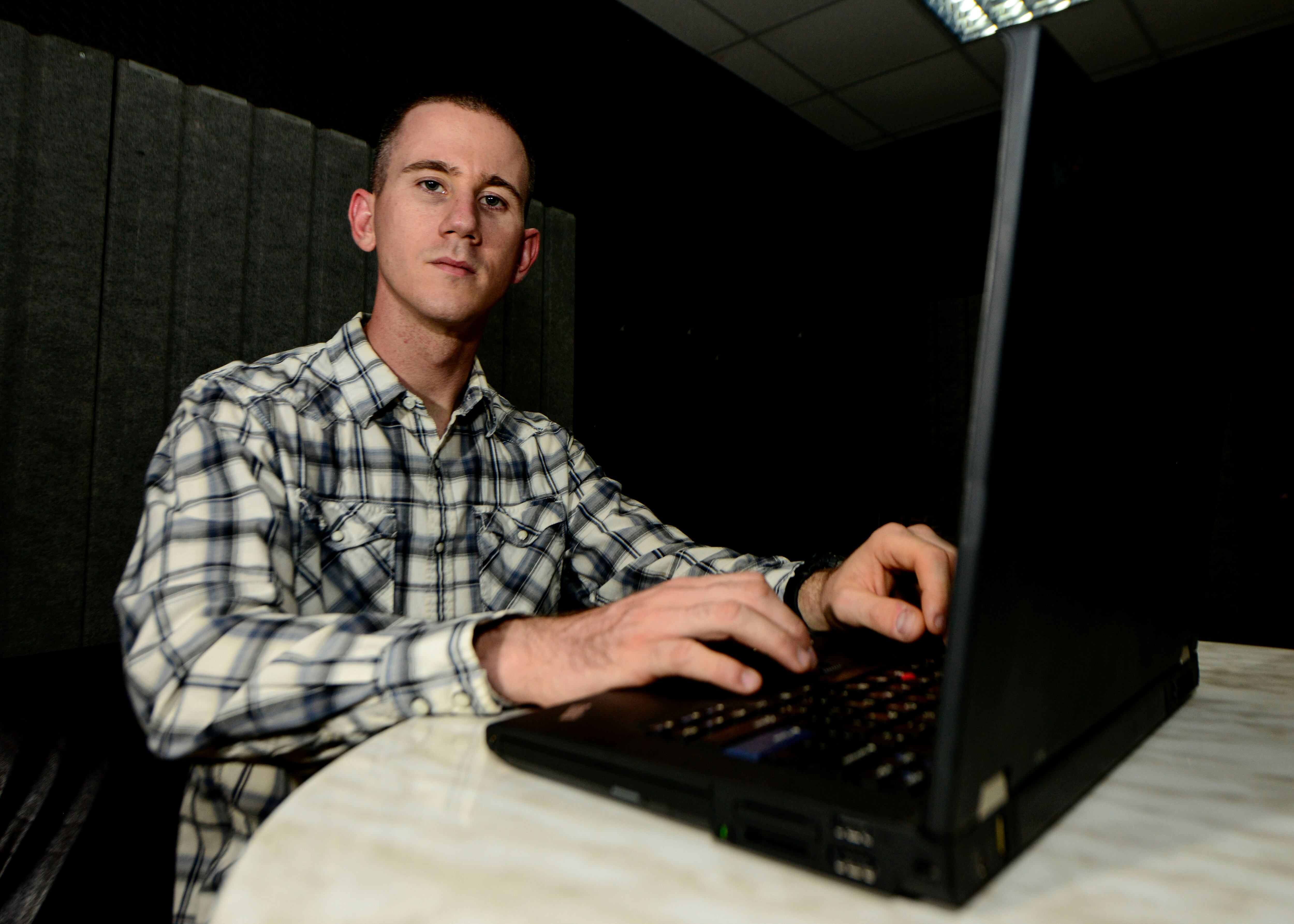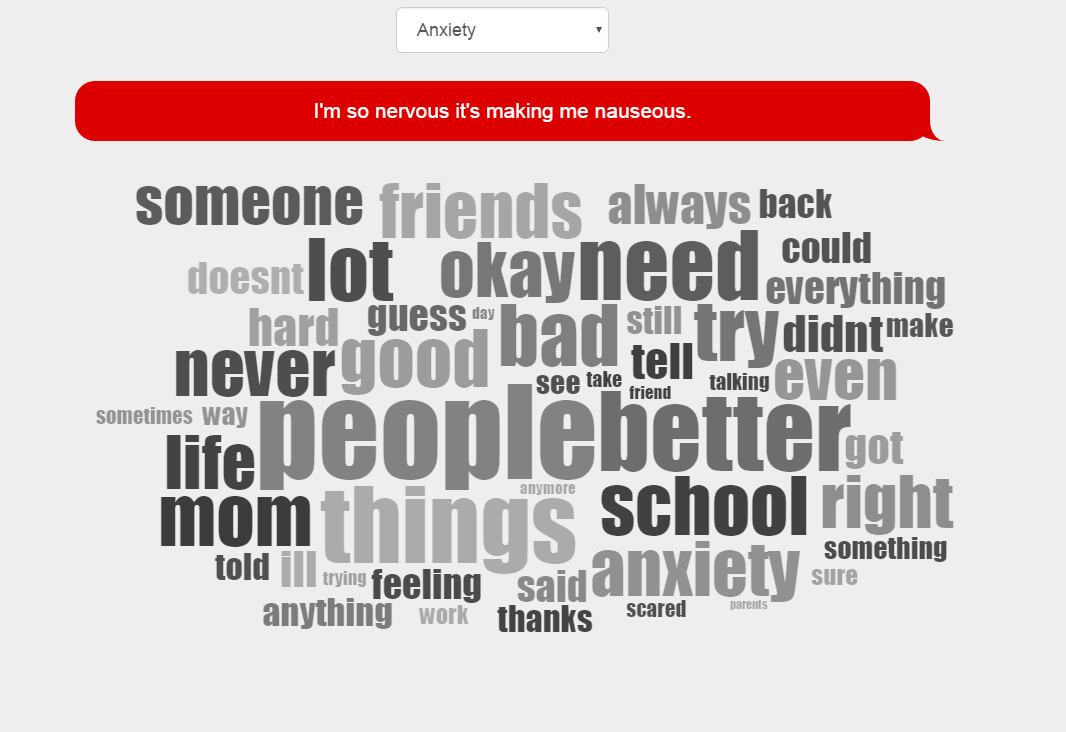The man texting with Zachery Deuyour was texting with was wrestling with feelings of isolation and extreme loneliness.
"At first he didn't want to talk. He was very blunt and one-worded. Very closed off."
Deuyour didn’t know who the man was, and the man didn’t know anything about him, The men knew nothing about each other, but it didn’t take Deuyour long to figure out the guy was a veteran. Soon the man revealed he was actually retired from the Navy.
"He'd lost contact with a lot of the friends he'd made in the military," Deuyour said. The man had served so long he didn't know how to relate to civilians, much less make new friends.
Deuyour knew he could help. And for the next 45 minutes, he did exactly that, one text at time.
It’s all part of a new text-based counseling service, first designed for teens, that’s now become a confidential lifeline for anyone, including for troops and veterans in crisis.
Dubbed Crisis Text Line, the free, confidential service was created by Nancy Lublin in 2013 while she was leading a nonprofit organization for adolescents that often found itself on the receiving end of texts asking for help.
That reached a tipping point, she said, when the group got this text: "He won't stop raping me. It's my dad. He told me not to tell anyone. R U there?"
"We realized we had to build something to help these people in pain. So, we launched Crisis Text Line."
Since then, CTL counselors have logged more than 19 million text message exchanges helping about 500,000 people and counting.
All those seeking help have to do is text the word START to 741-741 from anywhere in the U.S., anytime, about any type of crisis. That text is routed to a live, trained, volunteer counselor usually working from a laptop or desktop computer from their home — or wherever — using CTL's texting dashboard.
This is not therapy, or ongoing counseling, but helping those in trouble move from what Lublin calls "a hot moment to a cool moment."
Meanwhile, as word has been getting out about the service, those in the military community — everyone from active-duty troops and their families to retired combat veterans — are taking advantage of the text line in increasing numbers.
Because the service is confidential, it's impossible to know exact numbers, but using keyword analysis of text exchanges, CTL's data experts estimate conversations involving military personnel and veterans have jumped 33 percent since 2014.
"We're kind of amazed so many military people are finding us. And we're glad they are. I guess I'm just a little embarrassed as an American that we're not taking better care of our own people, especially the people who served us," Lublin said.
While only a small fraction of the total text messages are believed to hail from those in the military community — currently 2.4 percent, or about 12,000 per day — they are wrestling with some of the most intense problems.
In an exclusive data scrub of Crisis Text Line conversations for Military Times, those believed to have a military background are wrestling with depression, anxiety, substance abuse and thoughts of suicide in far greater numbers than most texting in for help.
Among the most frequent issues of military and veteran texters, however, are problems of sexual and physical abuse, financial woes, and issues with housing and homelessness.
"The financial problems really surprised me," Lublin said.
Compared to other Crisis Text Line exchanges, military and veteran conversations are one-and-a-half to almost four times more likely to include the following issues:
- Mental illness: 379.54 percent more likely to occur
- Sexual abuse: 309.64 percent
- Physical abuse: 248.96 percent
- Financial: 141.35 percent
- Work: 132.56 percent
- Housing/homelessness: 127.27 percent
- Medical concerns: 122.28 percent
"That’s a hard list of issues, some very severe stuff," said Rob Filben, Crisis Text Line’s chief data scientist. Conversely, he says, veterans and those in the military are far less likely than other texters to be wrestling with their body image or engaging in cutting or other types self-harm that’s often associated with anxiety and depression.
"Body image was highly over-indexing during the prom season, for example, but that's not something that comes up in most military conversations," he says.
It appears mornings are some of the hardest times for those in the military community. Conversations mentioning the military typically jump in the mornings, between 7 a.m. and noon, usually peaking around 9 a.m., Filben's analysis revealed.
Text conversations mentioning involvement in the military are more likely on Tuesdays, Fridays and Saturdays, compared to most Crisis Text Line exchanges.
Even as CTL is reaching more people in the military community, it's also becoming a place where veterans are finding new ways to continue serving as volunteer counselors.
"Oh, some of my favorite counselors are veterans," Lublin gushes.
"When we spike in volume and it becomes really hectic, it's the veterans who step up and say, 'We got this. We can do this.' They're amazing," said Lublin, who explained that counselors and staff communicate among themselves via global and individual chat lines. "It's incredible to watch. They really are some of my favorite people."
Indeed, she says her growing network of 1,500 volunteer counselors includes a wide mix of veterans and even active-duty troops.
"They just see this as an extension of their service. These are people who were born to serve. And that service doesn't end when they take off the uniform."

Air Force Senior Airman Zachery Deuyour is a volunteer counselor with Crisis Text Line.
Photo Credit: Air Force
Deuyour, a senior airman in the Air Force, is one of them. He started volunteering about a year ago.
In the months since, he's worked with more than 600 people who've texted in for help. Of those, about 35 have been with a veteran or someone still serving in the military.
He can see how a text-based hotline can be a good fit for those still serving because it's "completely confidential. I can't even see their phone number."
"I wouldn't say CTL is a one-size-fits-all solution," he says. "But it's a great avenue for someone who doesn't want to talk about something out loud. You can be in the middle of a mall — or wherever — while you're texting and no one knows you're reaching out for help."

CTL volunteers must pass a background check and complete a 34-hour online training program. Less than four out 10 volunteers make it through the training. Those who do must commit to work at least four hours per week.
Typically people just want someone to interact with as they navigate a hard spot in life.
But sometimes it's far more serious.
Of the interactions Deuyour has been involved in, 17 turned into what CTL leaders call "active rescues" involving texters threatening to commit suicide or serious harm to themselves. "And all of these were confirmed to have gotten help," he says.

This word cloud created by Crisis Text Line data shows many of the words most often used by texters struggling with anxiety.
Photo Credit: Courtesy of Crisis Text Line
CTL was a good fit for that veteran who felt so alone after retiring.
They talked about the things he liked to do and eventually zeroed in on where he was getting stuck.
"Every time he tried to make a friend, he felt like something was blocking him from actually relating."
Through their interaction the two landed on the idea of finding ways to meet other veterans.
"That's such a great idea," the man texted. It was just the plan he needed.
It doesn't t matter who you are, Deuyour said, "everyone — military, nonmilitary, veteran — should never feel like you don't have somewhere to go to. There are so many options available, there's no reason to think you have to go through your situation alone. You're not alone. There are people who care and are willing to listen."
Jon R. Anderson covers all that's fun, fascinating, and formidable about military life, from off-duty travel and entertainment to family and fitness. He can be reached at jona@militarytimes.com.









